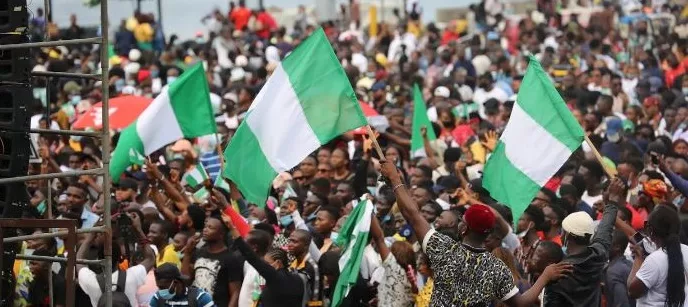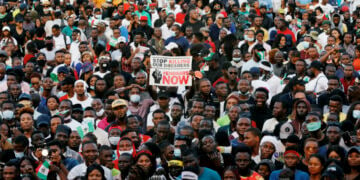Nigeria has witnessed 26 years of unbroken democratic governance since 1999. This is the nation’s fourth and longest attempt to date in the country’s annals. We have seen its attendant challenges, which are a norm in climes where democracy is practiced.
In some instances, the stormy relationship between the various arms of government made it more interesting and desirable than any other form of governance. Under a democracy, in theory, the rights and privileges of citizens are not supposed to be stifled by decrees; their freedom of expression and association are assumed to be guaranteed, as well as freedom of the press, among others.
Before 1999, the country had made attempts at democratic governance, but these attempts were disrupted by military interventions that set back the democratic journey. Therefore, the recent coup scare that has pervaded the polity warrants concern from well-meaning Nigerians. Although the military high command has dismissed the rumour, it doesn’t detract from the fact that something was amiss in the system. The recent arrest and detention of some military officers for gross misconduct made it more curious.
As a newspaper, we are duty-bound to lend our voice to the sustenance of democracy in Nigeria. Although democracy is often perceived as complex and expensive, it is preferable to a military regime. The fact that ours is a nascent democracy makes the rumour of a military coup more disturbing.
The era of military regimes in Nigeria remains a vivid memory in the nation’s history. This comes on the heels of the military’s involvement in governance, which has left a bitter taste in our mouths to date. For example, the military era of the 80s did more harm than good, and there have been conversations about military interventions in Nigeria and how they indeed set the country backwards.
It is on this premise that we say no to anything that bears the semblance of a military coup in Nigeria. This is also a wake-up call to the country’s political class to get its act together by critically examining areas of governance that might warrant the rumour of a military coup.
The political authorities must, as a matter of urgency and national interest, begin to systematically address the myriad challenges in the country by providing purposeful leadership that enables teeming Nigerians to translate their hopes and aspirations into tangible realities.
Having said this, it is also pertinent to remind the military authorities of their allegiance to the country, as enshrined in Section 217(2) of the 1999 Constitution of the Federal Republic of Nigeria (as amended). That provision stipulates that the primary role of the Armed Forces is to protect Nigeria from external aggression and maintain its territorial integrity. This is sacrosanct.
We also urge the military authorities to urgently address the issues within their system that require immediate attention, such as the welfare, working, and living conditions of service personnel, as well as want to call on the military authorities to urgently address the issues in the military that require immediate attention, such as welfare, working and living conditions of service personnel, and other areas that deserve the necessary attention.
Currently, the military is engaged on several fronts across the country, and any distraction from fulfilling its core mandate might spell doom for the nation.
We have witnessed a disturbing trend in recent times, where soldiers take to social media to vent their frustrations with their commanders. This trend has been pronounced and may lend credence to the rumour making the rounds about an attempt by some disgruntled military personnel to take over the country’s affairs.
In the prevailing situation, we are not demanding a public statement from the military. Our position is that the military authorities must look critically at the issues raised by the arrested soldiers and address them adequately. The country is emerging from a complex period, and anything that unnecessarily heats the polity is unwelcome, as it tends to threaten investors’ confidence in the country’s political stability.
We are persuaded to aver that the views and conversations on the coup scare are counter-productive and has the potential to disrupt the nation’s socioeconomic lives. The polity is already tense, and there is an urgency to move away from this conversation to other issues that would better serve the lot of the people. There are more pressing matters to be addressed. That should be a paramount concern in the national discourse. The government must quickly rethink its strategies towards improving the lives of Nigerians.
It is essential to emphasise that we unreservedly support democracy. Additionally, it is necessary to remind the political class that citizens expect to be exposed to the benefits of the fabled democracy dividend at all times. What this means is that they have a right to demand from the ruling class the kind of governance patterns that guarantee those benefits.





